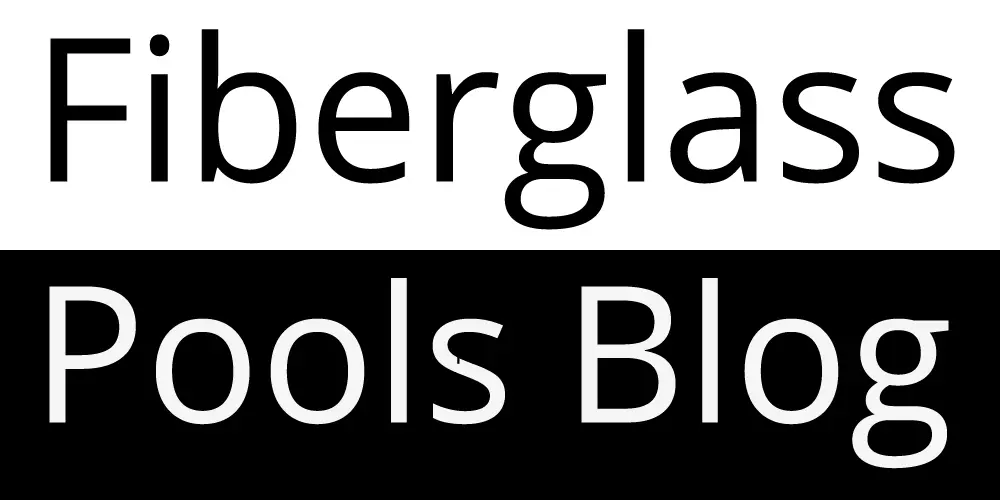When deciding on the perfect pool for your home, the choice often boils down to two primary materials: fiberglass and concrete. But which is the better option? In this article, we will delve into a thorough comparison of fiberglass pools vs concrete pools.
Table of Contents
Fiberglass Pools vs Concrete Pools Pros And Cons
Major Factors that Differentiate Fiberglass and Concrete Pools
- Material Durability
- Fiberglass: Known for flexibility and resistance to wear and tear.
- Concrete: Offers robustness but may require more maintenance.
- Installation Time
- Fiberglass: Generally quicker to install.
- Concrete: Takes longer due to its complex nature.
- Maintenance Requirements
- Fiberglass: Lower maintenance costs and efforts.
- Concrete: Requires regular maintenance to prevent cracks and surface issues.
- Cost
- Fiberglass: Typically less expensive upfront.
- Concrete: May involve higher initial costs but offers customization.
- Aesthetic Appeal
- Fiberglass: Limited customization but sleek appearance.
- Concrete: Highly customizable, allowing for unique designs.
Environmental Considerations
When choosing between fiberglass and concrete pools, understanding their impact on the environment is essential.
-
Fiberglass Pools: They generally require fewer chemicals for maintenance, reducing the potential harm to the environment. Moreover, their smooth surface may inhibit algae growth, leading to less frequent need for cleaning.
-
Concrete Pools: While durable, concrete pools may need more regular maintenance and chemical treatments. This could have a more significant environmental impact over time.
Customization and Longevity
Customization and the lifespan of the pool are vital considerations for homeowners.
-
Fiberglass Pools: Offered in a range of pre-made shapes and sizes, fiberglass pools may lack the customization potential of concrete but tend to have a longer lifespan with proper care.
-
Concrete Pools: Concrete allows for virtually unlimited customization, from shape to added features like waterfalls and tanning ledges. However, they may require more frequent resurfacing.
User Experience
User experience plays a crucial role in determining the right pool type.
- Fiberglass Pools: Known for their smooth surface, providing a comfortable experience for swimmers. They also heat more quickly and retain heat well.
- Concrete Pools: The textured surface may be less comfortable on the feet, but the high level of customization can create a unique swimming experience.
Resale Value
The type of pool you choose can significantly affect the resale value of your home.
- Fiberglass Pools: Often seen as more attractive due to lower maintenance needs, potentially adding to your home's resale value.
- Concrete Pools: Though beautiful and customizable, higher maintenance requirements may impact the resale value.
Certainly! Continuing the comprehensive analysis of fiberglass pools vs. concrete pools:
Safety Considerations
Safety is paramount when selecting the right pool, and both fiberglass and concrete pools come with specific safety aspects to consider:
- Fiberglass Pools: Their smooth, non-abrasive surface reduces the risk of scrapes and injuries. Additionally, their flexibility might minimize potential damage from ground movements.
- Concrete Pools: Although durable, the rougher surface may pose a risk of scrapes. However, the customizability of concrete allows for the implementation of various safety features, like custom handrails or shallow areas for children.
Seasonal Adaptations
Living in a region with distinctive seasonal changes? Here's how fiberglass vs concrete pools adapt:
- Fiberglass Pools: Known for excellent insulation, they can retain heat efficiently during cooler months. Their flexible structure might also be more resistant to freeze-thaw cycles.
- Concrete Pools: While they can be customized for seasonal considerations, concrete pools may be more prone to damage from freezing and thawing. Proper winterization is essential to prevent potential issues.
Accessibility and Special Needs
Creating an accessible environment can be a priority for some homeowners:
- Fiberglass Pools: Limited customization may restrict accessibility adaptations, but the smooth surface provides comfort.
- Concrete Pools: Concrete's high customizability allows for various accessibility features, such as ramps and specially designed entry points.
Which is better a fiberglass or concrete pool?
The choice between a fiberglass pools vs concrete pools is multifaceted, encompassing considerations like durability, cost, aesthetics, safety, seasonal adaptations, and accessibility. This article, provides an extensive and unbiased examination to guide homeowners in their decision-making process.
By weighing the advantages and limitations of both options, and reflecting on your unique needs and preferences, you can find the perfect pool to enhance your outdoor living space.
For further guidance, don’t hesitate to consult reputable sources such as Leisure Pools, River Pools & Spas and Latham Pools, all prominent in the world of pool construction and design.
Make a splash with the right choice, and enjoy the luxury of a pool that resonates with your lifestyle and values.

